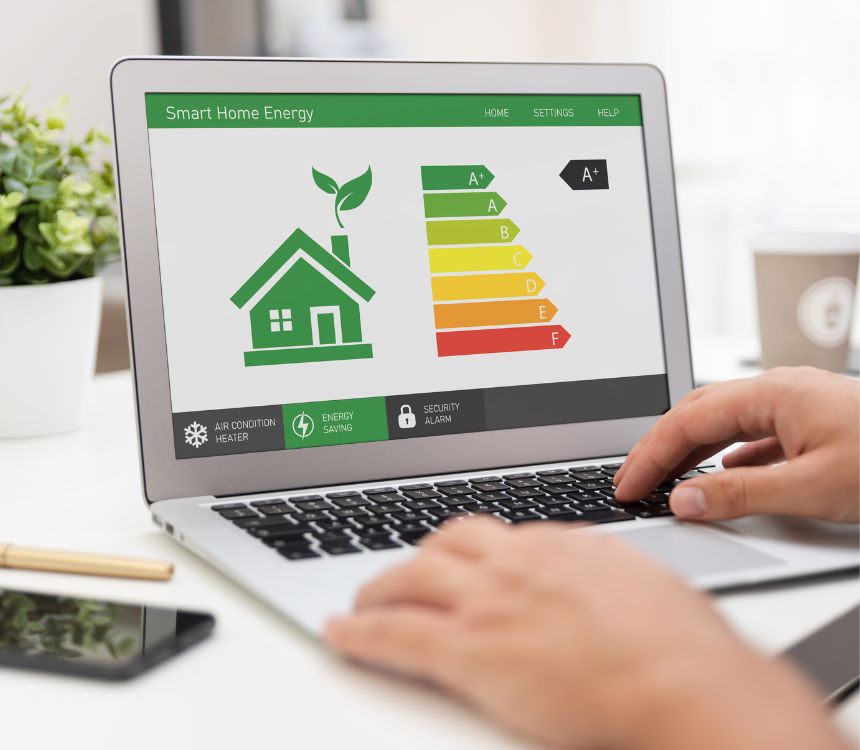If you’re a landlord in the UK considering renting out a House in Multiple Occupation (HMO), you’ve likely wondered: Do you need an EPC for an HMO? The short answer is yes, but there are some nuances to consider. This guide will explain what an EPC is, why it’s necessary for an HMO, and how to comply with UK regulations. Let’s dive into the details so you can avoid fines and attract tenants with ease.
What is an EPC?
An Energy Performance Certificate (EPC) is a document that provides an energy efficiency rating for a property, from A (most efficient) to G (least efficient). It also includes recommendations for improving the property’s energy performance. The certificate is valid for 10 years and is legally required when renting out most types of properties in the UK. The EPC helps tenants understand energy costs and allows them to compare energy efficiency when choosing a rental property.

Why Do HMOs Need an EPC?
Since 2008, EPCs have been a legal requirement in the UK for rented properties, including HMOs. In 2018, Minimum Energy Efficiency Standards (MEES) were introduced, requiring all rental properties to have an EPC rating of at least an E. This rule applies to new tenancies, and, since 2020, to existing tenancies as well. Therefore, if you’re renting out an HMO, an EPC is essential not just for compliance but also for ensuring the property meets the required energy efficiency standards.
Is an EPC Required for Each Unit in an HMO?
In most cases, one EPC for the entire property suffices. This applies if the HMO is rented out on a single tenancy agreement covering all occupants or multiple agreements but with shared facilities (like a kitchen or bathroom). However, if you’ve converted the HMO into self-contained units (each with private facilities), each unit may require its own EPC.
To determine which setup applies to your HMO, consider whether each room is let on a single agreement or separate tenancies and whether shared facilities are present. Consult a qualified assessor if you’re unsure, as the requirements can vary based on property layout and usage.
Get the EPC Certificate for HMO
Ensure your HMO is compliant—check your EPC today!
EPC Requirements for HMO Landlords: Key Points to Know
- EPC Rating Minimum: The property must meet an EPC rating of E or above.
- EPC Validity: The EPC is valid for 10 years. Make sure it’s up-to-date and covers the entire period of the tenancy.
- Tenant Access: Tenants must be provided with a copy of the EPC at the start of their tenancy. This helps them understand the property’s energy efficiency and potential costs.
Exemptions and Special Cases
There are certain cases where an HMO might be exempt from EPC requirements:
- Listed Buildings: If your HMO is a listed building, you might be exempt, but this can vary depending on local authorities’ interpretations.
- Financial Exemption: If meeting the minimum EPC requirements would result in significant financial hardship, you may be eligible for an exemption. This typically applies if the recommended improvements exceed a £3,500 cap.
Exemptions must be registered on the PRS (Private Rented Sector) Exemptions Register. It’s crucial to consult a professional to see if your property qualifies.
How to Improve Your HMO’s EPC Rating
If your HMO doesn’t meet the minimum EPC requirements, consider these common energy-efficient upgrades:
- Insulation: Adding or improving insulation in walls, lofts, or floors can significantly boost energy efficiency.
- Efficient Heating: Upgrading to a more efficient boiler or installing modern heating systems can help achieve a higher EPC rating.
- Double Glazing: Windows play a major role in energy retention. Double or triple glazing can prevent heat loss and improve your EPC score.
- Energy-Saving Lighting: LED lighting is an affordable way to increase energy efficiency and lower utility bills for tenants.
Penalties for Non-Compliance
Failing to comply with EPC requirements for an HMO can result in fines. Local authorities can impose penalties of up to £5,000 for properties that don’t meet EPC regulations. In addition, letting out an HMO without a valid EPC could affect your property’s appeal to prospective tenants, as many renters now look for energy-efficient properties to save on utility bills.
HMO Landlord Certificates
Ensuring Compliance and Attracting Tenants
In today’s rental market, having an EPC isn’t just about meeting legal requirements—it’s also a crucial factor for attracting tenants. With rising energy costs, tenants are increasingly aware of the impact of a property’s energy efficiency on their utility bills. By securing a high EPC rating, you can make your HMO more appealing while complying with UK regulations.
In Closing, if you’re renting out an HMO, an EPC is a must-have. Ensure your property meets the minimum standards, keep the EPC up to date, and take steps to improve your property’s energy efficiency. This will not only keep you compliant but also make your HMO more attractive to prospective tenants.
Further Reading
How to Get the Fire Safety Certificate for an HMO
HMO Electrical Requirements: A Comprehensive Guide for Landlords
HMO Landlord: How to Set Up a Company
What Certificates Are Required for HMO Properties?
How to Check if a House Has an HMO Licence
HMO Minimum Room Size Requirements
HMO Certificate of Compliance: Essential Guide
Does an HMO Certificate Have to Be on Display at the Property?
How to Expedite an HMO Certificate
How Often Does an HMO Require an Electrical Installation Certificate?
Landlord HMO Safety Certificate Cost: Essential Guide
What Happens When an HMO Licence Expires?
How to Convert a House to an HMO